 7
comments
|
Monday, November 08, 2010
7
comments
|
Monday, November 08, 2010

I was rooting for Tyler Perry. I wanted him to win-to prove all of his critics wrong-to finally achieve the respect from Hollywood that has eluded him for his entire career, the respect that seems to only be an afterthought publicly for Perry in the midst of his multi-million dollar entertainment empire, legions of devoted fans, and media mogul status, but privately must be as important to him as it is to those who defend his desire to be considered a legitimate filmmaker.
I wanted to love For Colored Girls and I wanted a new generation of women and men who may not have experienced the power of Ntozake Shange’s original work to cry, feel, dance, sing, and marvel at the beauty of her words and the experiences of so many incredible black women as they leaped from the page to the screen in Perry’s adaptation. This did not happen. Instead what Perry gave us was a version of Shange’s For Colored Girls that is barely recognizable, if it were not for Shange’s poetry interwoven into typical Perry melodrama and randomly assigned to his gifted actors this film could have been any number of Perry’s previous efforts minus the mature and often intense subject matter.
There is a clear distinction between Perry and Shange’s contribution to the imposter that bears the name of the Tony nominated Broadway play that’s currently in theaters. Shange’s words and intentions soar while Perry is seemingly intent on bringing her down to earth and packaging the complexity of the women whom she writes about in an accessible soap opera format filled with religious overtones to be consumed by the faithful.
The resilience and strength of black women that has carried us through slavery, segregation, broken homes and in Shange’s original is nowhere to be found in the film; downtrodden, down low, down and out, and without hope. Once again black women are the victims and black men are the predators and cause of their pain.

This could not be more evident than in the Perry crafted story line between Janet Jackson’s character Jo and her down low husband played by Omari Hardwick, which served as the source of my ire and the catalyst for numerous anti-gay slurs that were hurled at the screen from the audience.
Jackson plays a successful and wealthy magazine editor who is oblivious to the plights of women she considers beneath her. On the surface she seems to be in denial about her troubled marriage and her husband’s homosexuality by looking the other way as she notices her spouse glancing too long at the backside of a strange attractive man he passes on the street or as he unsuccessfully tries to ease into their bed after a night of anonymous sex without disturbing her. It doesn’t take long before a recurring cough foreshadows sickness and forces Jo to visit her gynecologist setting the stage for the ultimate showdown between Jo and her down-low spouse.
Perry and his best friend Oprah Winfrey are clearly competing for who can create an even greater rift between black men and women by using the down-low monster to further strain relationships between heterosexual black couples while simultaneously blaming black gay men for the increase in new HIV/AIDS infections among black women, a myth that has been debunked by the Center for Disease Control, yet still persists in many circles and is perpetuated by Perry in this film.
Surely Perry is smart enough to know any adult who chooses to engage in sexual intercourse should be aware of the risks and responsible for his or her own sexual health, right? Surely Perry is using his art to empower black women to do so, right? As a resident of the city of Atlanta, home to one of the largest black LGBT populations in the country surely Perry knows openly gay black men who defy the dishonest, deceitful, and down-low low-down character made famous on his best friend’s couch in 2004 and who makes an unnecessary and stereotypical appearance in his film, right? Apparently, wrong.

Writer Wesley Morris said it best in his review of For Colored Girls on boston.com when referring to Perry’s depiction of black men in his films: “Perry has been playing a black woman for so long — he’s starred as the armed-and-dangerous Madea in at least five movies — that he practically is one. But black men in Perry’s movie are a source of visceral, physical ache. It’s as if a brother has broken his heart, too.”
And it’s Perry’s alleged homosexuality and conflict thereof along with his Christian faith that finds it’s way into all of his films that makes this aspect of For Colored Girls extremely hard to digest. One has to wonder if the words and scenarios Perry has written for this detestable down low character were born out of his own experience as an alleged closeted gay man held prisoner by religious fundamentalism and the traditions of the black church.
I’m convinced that Perry’s work will get better when he is able to write from a place of freedom and authenticity.
The powerful performances of his brilliant female cast with standout performances from Anika Noni Rose, Thandie Newton, Kimberly Elise and Phylicia Rashad isn’t enough to save Perry from himself and his tried and true formula of over-the-top melodrama. While we applaud Perry for his efforts and for employing black actresses who are often overlooked in Hollywood, they along with his audience deserve better material and Ntozake Shange deserves an apology.



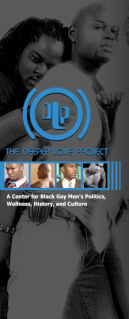
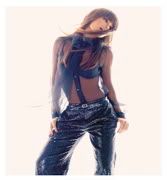
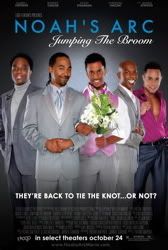
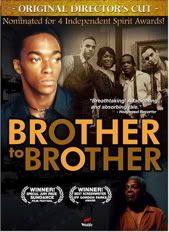
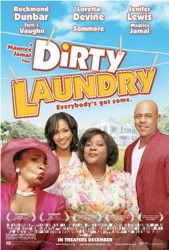
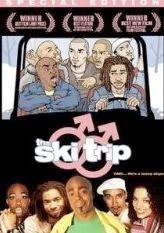
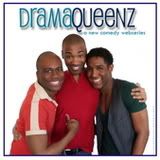
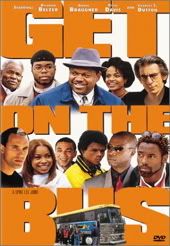
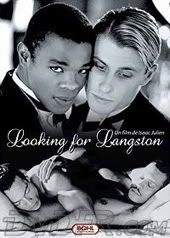
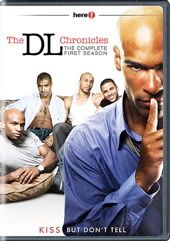
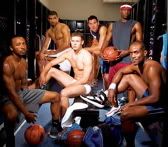
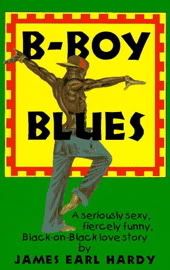
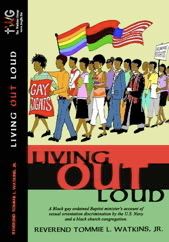
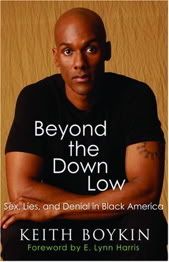

7 Comments:
I'm sorry that you had to experience that type of response from the audience. I watched the movie in downtown Washington, DC, and while there was the normal "gasp" from some in the audience, there were no rude remarks. It was simply a story-line; one of several story-lines. In my very full theater, the most notable comments from the audience came during the powerful rape scene, abortion scene, and the scene were the 2 children are victims of their father. Audience members were noticeably crying during these scenes. The issue with Jo and her husband was minor and very predictable. I did like the movie overall.
November 08, 2010 10:47 AM
I have seen the movie For Colored Girls and I agree the movie is great. There are nuances in the movie that demand your attention. Macy Gray was in the movie for three minutes and her performance resonated in the theatre. The emotions exhibited from the cast (including some of the finest female thespians in the world) left me in awe. May I suggest you see the movie again. This time without all of your pre-conceived notions. I submit that you missed a very good movie. As for the depiction of African American men in the movie you need to speak with Ntozake Shange. This is Ms. Shange depiction of the men in that era. Mr. Perry just put her words to the screen. If you feel there is male bashing in this movie you should speak to Ntozake. Why the other critic mentioned in your critique of Colored Girls, felt it necessary to attack Tyler Perry character instead of critiquing the movie was unnecessary and lack professionalism. The reader is not asking for a psycho analysis of Tyler Perry. The reader is requesting a critique of a movie. Perhaps the critic should go back to school an obtain a degree in Psychology?
November 08, 2010 3:19 PM
I could not agree with you more on this Darian, especially in regards to Perry's latent homosexual tendencies.
This was just SAD.
In the future I would love to see this movie rebooted by a better director and writer.
November 08, 2010 3:25 PM
@Anonymous
Funny. Your argument would hold some weight if Ntozake Shange had actually written the down low storyline in the original For Colored Girls that I take issue with in my post. The DL issue as well as Phylicia Rashad, Whoopi Goldberg, and Kerry Washington's characters were all created by Tyler Perry. I suggest you go and read Ms. Shange's original work.
The only thing I entered the theater with was an emotional investment in the brilliance of Ntozake Shange's words and a sincere desire for this film to be great and it wasn't.
November 08, 2010 3:50 PM
couldn't have said it better myself, Darian. Really rich cultural critique.
will share...
Thank you,
tim'm
November 08, 2010 3:55 PM
I have seen the play and read the book. Yu are correct,there are several characters that Perry created as such. The film could not be ladies dancing in litards and color skirts to depict their characters. Perry took some liberties to make the stage play a film. You have decided to put all this focus on this down low brother instead of experiencing the film version of the play. There are several scenes where the ladies recite Shange's poetry. The play like the film is a commentary of women losing themselves to men and taking back their freedom. Shange did not depict postive male images in the play or the book. Yet you called her words brilliant. I agree her words are brilliant and so was this movie. I watched the movie with my eyes open. I feel you had one eye open and one eye close. Regardless of whether or not we agree on the quality of the movie, was the assassination of his character necessary. All the language reference Perry coming to terms with his alleged homosexuality will make him a better director. Really? I comprehend you do not like the movie. The personal attacks on his character were petty and irresponsible. Thinking is a verb. Knowing is an adjective. What you think is not always what you know (true). Words are powerful use them wisely.
November 08, 2010 6:26 PM
I realize that I am a month late in responding, but I only recently came across your blog. Anyway, I wanted to ask for a bit of clarification in regards to the Wesley quote you added in your entry. Did you simply mean that Perry's work seems to reflect a bitterness toward black men, one or more of which could have broken his heart, hence his reoccuring victimizer portrayals?
I hope this point isn't obvious, but I was side tracked by the first sentence about Perry practically being a black woman. This line greatly offended me, a black woman, not only because Tyler (and Wesely, or at least I assume) has never experienced life as a woman, but because I would like to believe (although it might be niavely) a black woman would not recycle so many stereotypes about women, and water down the complexity of our experiences in ways that clearly proves Perry has no idea what black women actually go through.
December 09, 2010 11:18 AM
Post a Comment
<< Home